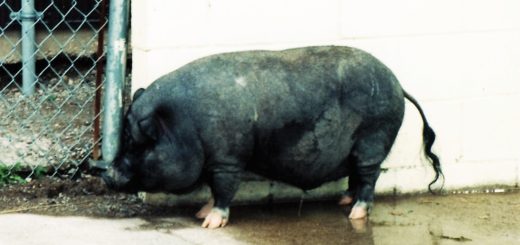Faint Glimmers of Common Sense in the Distance
Somehow, even amidst all the global “state of emergency” nonsense about coronavirus, with entire countries moving toward complete authoritarian lockdown and the criminalization of free movement — or rather, I suspect, because of this hyperventilating tyrannical lurch — I am beginning to notice occasional random acts of rationality seeping up through the cracks in our collective submission to the World State’s protective embrace.
For many days now, I have been shouting into the unresponsive cosmos that this virus:
(a) is not as deadly as first feared, having most of its serious effects among the very elderly or the otherwise severely vulnerable;
(b) has already spread so widely that all pretenses at “containing it” are nothing but political theater and/or authoritarian opportunism;
(c) is being absurdly over-hyped mathematically, by relying on confirmed cases as the standard for measuring the mortality rate, which makes no sense as soon as we recognize how unknowably wide — extremely wide and entirely unknowable at this point — is the gulf between confirmed cases (i.e., people who have tested positive) and real infections (most of which are necessarily asymptomatic and therefore untested).
I have therefore been arguing that, given the inevitability of the virus hitting untold numbers of people now, despite all our best totalitarian efforts, the best case scenario would be to accept the presence of this new flu virus in our midst, and allow it to run the course of all such viruses, to wit: spread most quickly in its weakest strains (due to the more serious strains usually causing the afflicted to be isolated by severe illness or death), thereby allowing the global population to develop antibodies to fight it, and eventually a widespread immunity to it, or at least an immunity to its most dangerous effects.
In tandem with this acceptance of the ways of Mother Nature — she is sometimes untidy and inconvenient in her wishes, but she knows what she is doing — we should, of course, take whatever precautions we can, without sacrificing anyone’s basic liberty and dignity, to avoid infecting the oldest and weakest members of our respective communities. That means, as with any flu virus: don’t visit grandma if you are sick; don’t abandon your older family members in nursing homes, surrounded by other sick people and careless, overburdened, or stupid nursing home staff; and make sure any weaker people of your acquaintance are not being left unattended for weeks at a time, without anyone looking in on them.
Of course, no one cares what I say, and most of those who have had anything to say about my views on the subject have been telling me I am not taking the “crisis” seriously, that I don’t understand the numbers, or that I don’t care about sick people.
So imagine my delight, today, when I read the suggestion of a British infectious disease specialist Professor Graham Medley, that Britain adopt the strategy of establishing “herd immunity,” i.e., accepting the fact of mass infection for the sake of reducing the most serious long-term effects of the illness.
“This virus is going to be with us for a long time, we’re going to have an epidemic and then it will become endemic and join in with all the other coronaviruses that we all have all the time, but don’t notice,” he continued.
It seems that Britain is indeed moving in that direction, in defiance of the rest of the world, which is still in the mode of isolating and tracking the movements of infected people. But, as the “herd immunity” argument puts it, and as I have been saying for days, by isolating in quarantine everyone who has even mild (or no) symptoms, simply because they have tested positive, what we are really doing is preventing the mild strain of the virus from spreading among the stronger members of society, in order to allow us to build our natural resources to fight it. The worst possible outcome of this strategy of isolation and tracking, it seems to me, would be to create artificially the kind of disaster that happened with the 1918 flu pandemic, in which, due to wartime conditions, the more dangerous mutations of the virus spread around the world rather than being isolated, such that they became dominant, as opposed to giving way to the weaker strains, as normally happens with a flu virus.
So, it seems that a few people are beginning to see past the popular panic and media alarmism, and the corresponding government despotic overreactions. Common sense has perhaps begun to emerge from the ashes of slavish fear, armed with a healthy and realistic respect for the ways of Mother Nature, who really is smarter than we are, for all our hubris.


